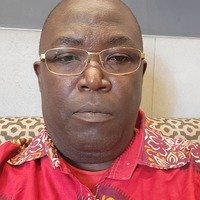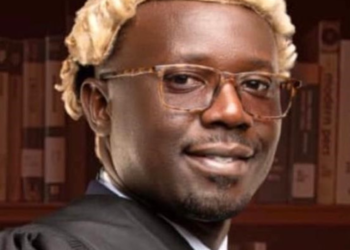Journalism at a Crossroads: Zambia’s ZIJ Bill and the global struggle for media freedom

By Francis C. Chishala
IN THE heart of Southern Africa, Zambia’s media sector is undergoing a seismic reckoning. The proposed Zambia Institute of Journalism (ZIJ) Bill has ignited a fierce national debate; one that transcends the confines of legislation and speaks to the soul of journalism itself. Is this bill a long-overdue step toward professionalising the industry, or a veiled attempt to silence dissent?
As the country grapples with this question, the ZIJ Bill has become a prism through which broader anxieties about press freedom, digital disruption, and democratic accountability are refracted. But Zambia is not alone. Across the globe, governments and media actors are wrestling with similar tensions, making the ZIJ debate a microcosm of a much larger story.
The ZIJ Bill: Between ethics and control
Introduced in early 2025, the ZIJ Bill seeks to establish a statutory body to regulate the registration, conduct, and qualifications of journalists in Zambia. Proponents argue that such oversight is essential to curb misinformation, elevate ethical standards, and protect the public from harmful content. They point to the proliferation of unverified online platforms and the erosion of trust in traditional media as justification for reform.
Yet critics; including MISA Zambia, the Media Owners Association of Zambia (MOAZ), and several independent outlets, warn that the bill could be weaponized to suppress critical voices. The lack of transparency in its drafting, coupled with limited stakeholder consultation, has fuelled fears that the legislation is less about reform and more about control.
Chief Government Spokesperson Cornelius Mweetwa has distanced the administration from the bill, claiming it was initiated by private journalists. But skepticism remains high, especially given Zambia’s history of media repression under previous regimes.
Global lessons: What international frameworks reveal
Zambia’s media regulation debate echoes global struggles. International media law is governed by a complex web of treaties, conventions, and regional agreements that aim to balance freedom of expression with accountability.
Key frameworks include:
The International Covenant on Civil and Political Rights (ICCPR), which guarantees the right to freedom of expression while allowing for restrictions that are “provided by law” and “necessary” for respect of the rights or reputations of others, national security, or public order.
UNESCO’s media development indicators, which emphasize pluralism, editorial independence, and professional capacity as pillars of a healthy media ecosystem.
The African Charter on Human and Peoples’ Rights, which enshrines the right to receive information and express opinions freely.
Countries like South Africa have adopted co-regulatory models, where independent press councils work alongside statutory bodies to uphold standards without compromising editorial freedom. In contrast, Ethiopia’s 2021 Media Proclamation created a statutory media authority with broad powers; raising concerns about political interference.
Meanwhile, Kenya’s Media Council Act (2013) offers a hybrid model: journalists must be accredited, but the council operates independently and includes representatives from civil society, academia, and the media industry.
These examples suggest that regulation need not be synonymous with repression—but only if transparency, independence, and inclusivity are built into the system.
Zambia’s fragmented media landscape
The ZIJ Bill debate unfolds against a backdrop of rapid media transformation. Traditional outlets like ZNBC, Times of Zambia, and Daily Mail still operate, but their dominance is waning. Private newspapers such as News Diggers and The Mast offer alternative narratives, while digital-only platforms like Lusaka Times and Zambian Watchdog have captured the attention of younger, urban audiences.
Social media has become a primary news source for many Zambians. As of 2025, the country boasts over 7 million internet users and 3.7 million active social media identities. This digital shift has democratized information access—but also introduced new challenges: misinformation, echo chambers, and declining trust in institutions.
Globally, similar trends are evident. In Brazil, WhatsApp has become a major news conduit, often used to spread disinformation. In India, YouTube and Telegram have emerged as influential platforms, bypassing traditional gatekeepers. These shifts underscore the need for media literacy and robust digital governance.
Economic pressures and editorial vulnerability
Zambia’s economic headwinds have hit the media sector hard. Advertising revenue is down, production costs are up, and many outlets struggle to stay afloat. Journalists face precarious working conditions, making them susceptible to bribery and political influence.
In May 2024, Minister Mweetwa urged government departments and private companies to support media houses through advertising. While well-intentioned, such support risks entrenching patronage and compromising editorial independence.
Globally, media sustainability is a growing concern. In the United States, local newspapers are closing at alarming rates. In Nigeria, journalists often rely on “brown envelope” payments to survive. UNESCO has called for innovative funding models, including public interest journalism funds and tax incentives for media start-ups.
Legal reform: Progress and pitfalls
Zambia has made some strides. The long-promised Access to Information law was signed in December 2023, marking a milestone for transparency. But other legislative efforts have raised alarms.
Draft laws intended to replace the 2021 Cybersecurity and Cybercrime Act—widely criticized for silencing online journalism—are under review. In their current form, these laws could criminalize defamation and restrict digital expression.
Reporters Without Borders ranked Zambia 82nd out of 180 countries in its 2025 Press Freedom Index. While this represents progress since President Hakainde Hichilema’s election, economic and legal pressures continue to constrain journalistic independence.
Internationally, defamation laws remain a flashpoint. In the UK, libel suits have been used to intimidate journalists. In Russia, vague “extremism” laws have led to widespread censorship. The UN Special Rapporteur on Freedom of Expression has called for decriminalizing defamation and ensuring that media laws align with international human rights standards.
Media literacy and civic engagement
As Zambia’s media becomes more decentralized, empowering citizens to critically engage with information is essential. Advocacy groups like MISA Zambia have called for national media literacy programs, regular assessments of the media landscape, and support for media entrepreneurship.
In Finland, media literacy is part of the national curriculum. In Canada, public broadcasters run campaigns to help citizens identify misinformation. These efforts foster informed civic participation and help inoculate societies against propaganda.
Zambia could benefit from similar initiatives—especially in rural areas where access to reliable information is limited. Community radio stations, mobile journalism units, and youth media clubs could play a vital role in bridging the gap.
A defining moment for Zambia and beyond
The ZIJ Bill is more than a piece of legislation. It is a litmus test for Zambia’s democratic maturity and its commitment to press freedom. The bill has exposed deep fault lines between regulation and repression, professionalism and politicization.
But Zambia is not alone. From Nairobi to New Delhi, from Pretoria to Paris, the struggle to balance media freedom with accountability is ongoing. The path forward lies not in control, but in collaboration; in building media systems that are ethical, resilient, and responsive to the needs of democratic societies.
As Zambia navigates its digital future, stakeholders must prioritize inclusive dialogue, safeguard editorial independence, and invest in sustainable media models. The goal should not be to tame journalism, but to empower it; to ensure that it remains a pillar of democracy, a watchdog of power, and a mirror of society.
Between the lines: The quiet power of a neutral media regulator
In the heart of Lusaka, where the scent of roasted maize mingles with the static of talk radio, a quiet revolution is underway—not in the streets, but in the architecture of media governance. It’s not the kind of upheaval that makes headlines. It’s subtler, more structural. It’s the idea that the fourth estate—so often caught between state control and corporate capture—might finally find a middle ground. That idea is embodied in a model regulatory framework: independent of government, yet neutral enough to bridge the chasm between public and private media.
This isn’t just policy. It’s a story of trust, of contested narratives, and of the fragile scaffolding that holds democracy together.
The problem with power
For decades, media regulation in many African countries has been a tug-of-war. On one end, governments wield licensing boards and broadcasting authorities like cudgels, silencing dissent under the guise of national interest. On the other, private conglomerates—often foreign-owned—shape public discourse through profit-driven algorithms and editorial bias. The result? A media landscape that is polarized, politicized, and perilously unaccountable.
In Zambia, the tension is palpable. Public broadcasters are often accused of parroting ruling party rhetoric, while private outlets chase sensationalism to stay afloat. The citizen; whether in Dundumwezi or Kalingalinga, is left to navigate a maze of half-truths and echo chambers.
A bridge, not a gatekeeper
Imagine a regulatory body that doesn’t answer to State House or stockholders. One whose mandate is not control, but coherence. It sets standards, not agendas. It ensures that both public and private media adhere to ethical journalism, fair representation, and transparent ownership—without favouring one over the other.
Such a framework is not utopian. It exists in fragments: the UK’s Ofcom, South Africa’s ICASA, Ghana’s National Media Commission. But the dream is to refine it—to strip it of political interference while anchoring it in democratic accountability.
This model regulator would be funded through a hybrid mechanism: part public levy, part industry contribution, with strict firewalls against influence. Its board would be composed of journalists, academics, civil society leaders, and legal experts—not political appointees. Its decisions would be subject to judicial review, not executive override.
It would not censor. It would calibrate.
The ethics of equilibrium
Neutrality, however, is not passivity. In a country where media can incite violence or suppress truth, regulation must be active, principled, and responsive. The framework must enforce codes of conduct, adjudicate complaints, and promote media literacy. It must protect whistleblowers and penalize disinformation—whether it comes from a state broadcaster or a viral TikTok.
But it must also listen. To journalists under threat. To communities misrepresented. To the silences that speak louder than headlines.
In this sense, the regulator becomes a kind of civic conscience—not a referee, but a custodian of narrative integrity.
The stakes of silence
Consider the 2021 elections. Social media buzzed with claims of rigging, while state TV aired victory parades. Private radio stations were raided. Bloggers were arrested. In the absence of a trusted arbiter, truth became tribal. The damage wasn’t just electoral—it was epistemic. Citizens no longer knew whom to believe.
A neutral regulator could have intervened—not to endorse a version of events, but to ensure that all voices were heard, verified, and contextualized. It could have convened fact-checking coalitions, mediated disputes, and upheld the right to report.
In doing so, it would not just regulate media. It would restore faith in it.
Beyond borders
Globally, the call for such frameworks is growing louder. As AI-generated content floods timelines and deep fakes blur reality, the need for principled oversight is urgent. But government control is no longer viable. Nor is laissez-faire deregulation.
The future lies in hybrid governance: independent, inclusive, and adaptive. A regulator that understands both the newsroom and the algorithm. That can navigate the politics of representation and the economics of attention.
In Zambia, this future is not far-fetched. It is already being imagined—in policy drafts, civil society forums, and the quiet resolve of journalists who refuse to be mouthpieces.
The final word
A model regulatory framework, independent yet neutral, is not just a bureaucratic fix. It is a democratic imperative. It is the scaffolding upon which pluralism, accountability, and civic trust are built. It is indeed a necessity that would promote professionalism and institutional integrity.
In the end, media is not just about information. It is about imagination; of who we are, what we value, and how we speak to one another. A neutral regulator doesn’t dictate that imagination. It protects the space in which it unfolds.
And in that space, democracy breathes.
The author is a freelance literary/narrative journalist, independent interdisciplinary social science researcher, international affairs expert, public relations consultant, humanitarian actor, and a scholar currently reading law and politics at Unicaf University. Motomediainnovations@gmail.com

























